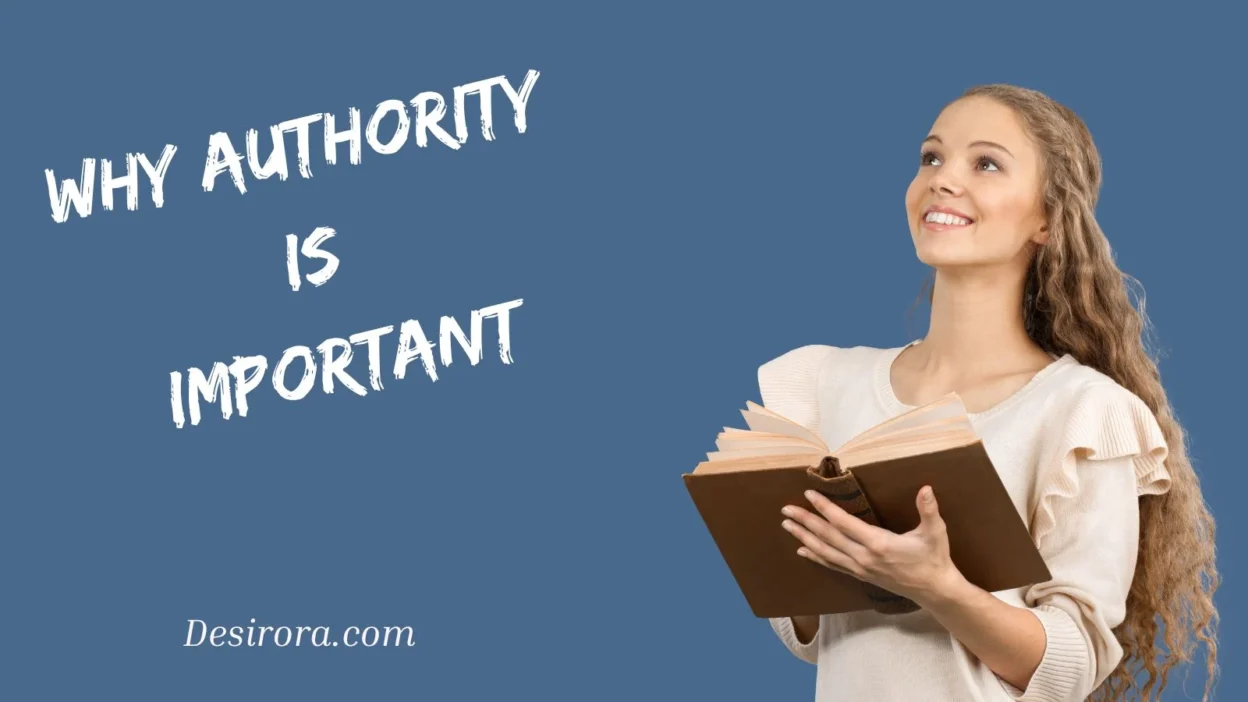Authority is one of those words that can stir mixed emotions. Some people see it as control or restriction, while others recognize it as the foundation of order, fairness, and progress. Whether it’s a teacher guiding students, a referee ensuring a fair game, or the government upholding laws, authority plays a vital role in shaping how we live together.
In this article, we’ll dive deep into why authority is important—exploring its foundations, uses, benefits, and even its risks. Along the way, we’ll look at real-life examples, stories, and even lessons from history and culture that show how authority impacts everyday life.
Understanding the Foundations of Authority
Authority isn’t just about power; it’s about responsibility, justice, and purpose. At its core, authority provides:
- Order – Clear rules and expectations keep societies from slipping into chaos.
- Security – Police, courts, and governments protect our rights, liberty, and property.
- Direction – Authority helps people pursue common goals instead of pulling in different directions.
Think of authority as the framework of a house. Without strong foundations, the whole structure collapses.
“Authority without wisdom is like a ship without a rudder.” – Old proverb
Types of Authority in Everyday Life
Authority isn’t one-size-fits-all. It shows up in different forms depending on context. Here are some main types:
| Type of Authority | Description | Examples |
| Formal | Rooted in position and rules | Boss, teacher, judge, officer |
| Informal | Based on respect and influence | Mentor, coach, friend people trust |
| Charismatic | Inspires through personality and vision | Famous leaders, artists, revolutionaries |
| Traditional | Grounded in customs and norms | Tribal chiefs, family elders |
| Legal/Official | Backed by law and coercion | Police, courts, governments |
| Moral | Based on values and principles | Philosophers, activists |
| Expert | Rooted in knowledge and skill | Doctors, scientists, engineers |
👉 Notice how authority isn’t limited to government. It shows up in schools, workplaces, sports, families, and even friendships.
The Role of Authority in Democracy and Government
In a democracy, authority balances freedom and responsibility.
- Governments create laws that protect people’s rights.
- Courts and police settle disputes fairly.
- Elected officials represent citizens’ voices.
Without authority, democracy would be nothing but shouting matches and chaos. Imagine air traffic controllers not having authority: accidents would be inevitable, and passengers’ safety would be at risk.
Authority doesn’t mean silencing freedom. The First Amendment in the U.S. Constitution guarantees freedom of expression and belief—but within a system of rules that prevents harm.
Authority in Schools, Sports, and Families
Authority shows up early in our lives. Teachers, principals, and parents all play key roles in guiding children.
- Teachers maintain order in classrooms so students can learn.
- Principals make sure rules are followed across schools.
- Parents assign chores and set boundaries, teaching responsibility.
Sports also demonstrate authority clearly:
- Referees and umpires ensure games are fair.
- Without them, disputes could turn into fights instead of being settled peacefully.
Think of baseball without umpires or basketball without referees. Every argument about a foul or strike would escalate. Authority keeps competition fun, fair, and safe.
Authority and the Justice System
The justice system illustrates why authority is essential.
- Police protect people and prevent crime.
- Courts apply laws fairly.
- Judges make decisions that settle disputes peacefully.
History shows what happens when justice breaks down. In Mark Twain’s Roughing It, he described towns in the Old West where there was little law. Pistols, knives, and violence ruled the streets. Without proper authority, life became dangerous, and people lived in constant fear.
Authority in justice isn’t about control—it’s about ensuring fairness, protecting liberty, and safeguarding society.
Why Authority Matters in Organizations and Workplaces
In workplaces, authority ensures clarity, accountability, and productivity.
- Managers delegate tasks.
- Employees know who is responsible for what.
- Clear chains of command prevent confusion and streamline decisions.
Without authority, organizations would struggle with chaos, missed deadlines, and poor communication.
👉 For example: In an airline company, authority defines roles—from pilots to mechanics to air traffic controllers—so that safety and efficiency are maintained.
The Link Between Authority, Freedom, and Responsibility
Authority isn’t the opposite of freedom—it’s the balance that makes freedom possible.
- Freedom without authority = anarchy
- Authority without freedom = tyranny
- Balanced authority = democracy and prosperity
Imagine driving without traffic rules. The “freedom” to drive anywhere would quickly become dangerous, putting lives at risk. Authority provides the responsibility framework that lets freedom thrive safely.
Historical Lessons: When Authority Breaks Down
History is full of lessons about failed authority.
- The Vietnam War and Watergate scandal showed what happens when government authority loses credibility.
- Towns in the Old West, described by Twain, saw bloodshed when law was absent.
- In some societies, lack of authority led to chaos, while too much unchecked authority led to oppression.
Authority must be legitimate, accountable, and fair to earn people’s trust.
Authority in Culture, Knowledge, and Academia
Authority isn’t just about government. It also shapes knowledge and culture.
- Academia: Peer-reviewed research carries authority because it’s been tested by experts.
- Media: Journalists like Bob Woodward and Carl Bernstein held authority when they exposed Watergate.
- Culture: Influential works—whether by Dante, Beethoven, or Kurt Cobain—carry authority in shaping thought and art.
👉 But authority in knowledge must be questioned too. Not every “expert” is credible, and bias can distort truth. Critical thinking helps us separate legitimate authority from manipulation.
Authority in Personal Development and Leadership
Authority isn’t always imposed—it can be earned.
Good leaders don’t just demand authority; they inspire trust. Coaches, mentors, and managers who balance authority with empathy empower people rather than control them.
Real-life example: Mrs. Reed, a coach at Pacific Central High School, inspired her students not only through discipline but also by celebrating small victories, creating a culture of motivation and respect.
Balancing Authority and Individual Liberty
The eternal question: How much authority is too much?
- Too little = chaos, crime, insecurity
- Too much = oppression, loss of freedom
- The right balance = justice, safety, and personal growth
As societies evolve, we must constantly question, refine, and redefine authority to ensure it serves people, not the other way around.
Common Problems from Lack of Authority
When authority is weak or missing:
- Conflicts escalate without resolution.
- Safety is compromised.
- Productivity drops in organizations.
- Social trust erodes.
Example: A classroom without a teacher’s authority quickly turns noisy and unproductive.
The Benefits and Costs of Authority
Benefits:
- Provides order and safety
- Protects rights and freedoms
- Encourages responsibility
- Enables progress
Costs:
- Can lead to abuse if unchecked
- May limit freedom if misused
- Requires resources to maintain (police, courts, systems)
How to Identify Legitimate vs. Illegitimate Authority
| Legitimate Authority | Illegitimate Authority |
| Earned through expertise, fairness, or election | Imposed through fear, coercion, or fraud |
| Protects rights and freedoms | Exploits or silences people |
| Transparent and accountable | Hidden, manipulative, unaccountable |
👉 Rule of thumb: Authority that uplifts and protects is worth following; authority that exploits should be challenged.
Authority in Modern Society: Challenges and Changes
Today, authority faces new tests:
- Technology – Social media gives everyone a voice, challenging traditional experts.
- Globalization – Authority crosses borders in areas like climate change or human rights.
- Diversity – Marginalized voices demand inclusion in systems of authority.
We now live in an era where authority must adapt—becoming more transparent, collaborative, and inclusive.
Real-Life Examples of Authority at Work
- Air traffic controllers prevent accidents by holding authority over pilots in critical situations.
- Referees keep games fair, turning heated disputes into peaceful resolutions.
- Parents establish discipline at home, teaching children responsibility.
- Governments balance freedom and security, ensuring citizens’ well-being.
Authority, Trust, and Social Order
At its heart, authority is about trust.
- People follow rules because they trust the system is fair.
- Workers respect managers who listen and guide.
- Citizens support governments that protect rights and freedoms.
Without trust, authority collapses. With trust, authority becomes a force for justice, order, and prosperity.
The Future of Authority in a Rapidly Changing World
Authority isn’t static. It evolves with society.
- In workplaces, authority is shifting toward collaboration and empowerment.
- In governments, authority is being tested by transparency demands.
- In knowledge, authority now includes diverse voices, not just traditional elites.
The challenge for the future is to ensure authority remains legitimate, fair, and effective while adapting to the needs of a fast-changing world.
FAQs
What is the purpose of authority?
Authority provides order, protects rights, ensures safety, and helps societies run smoothly.
Can authority exist without responsibility?
No. Real authority always comes with responsibility; otherwise, it turns into abuse of power.
What happens if there’s no authority?
Without authority, chaos arises—conflicts go unresolved, safety disappears, and freedom becomes meaningless.
How do you recognize legitimate authority?
Legitimate authority is fair, accountable, transparent, and used to protect and uplift people rather than exploit them.
Why is authority important in democracy?
In democracy, authority balances freedom with responsibility, ensuring justice and protecting citizens’ rights.
Conclusion
Authority is not about domination—it’s about direction, justice, and protection. From governments and schools to workplaces and families, authority provides the framework that keeps life safe, fair, and meaningful.
It ensures conflicts are settled peacefully, rights are protected, and communities thrive. Of course, authority must be balanced, questioned, and held accountable to remain legitimate. But without it, societies collapse into chaos.
In short, authority is the quiet force that makes freedom possible, justice attainable, and progress sustainable.

Aldous Huxley was a visionary writer and philosopher whose works explored human nature, consciousness, and the future of society. His ideas continue to challenge minds and inspire generations.



